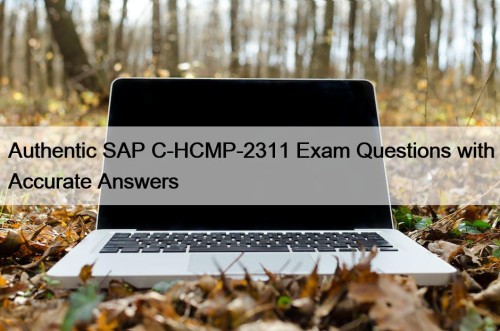Most Popular
 Valid SOA-C02 Exam Questions That Have Been Tried and True
Valid SOA-C02 Exam Questions That Have Been Tried and True
2025 Latest Prep4sureGuide SOA-C02 PDF Dumps and SOA-C02 Exam Engine ...
 Authentic SAP C-HCMP-2311 Exam Questions with Accurate Answers
Authentic SAP C-HCMP-2311 Exam Questions with Accurate Answers
What's more, part of that TorrentVCE C-HCMP-2311 dumps now are ...
 Pass Guaranteed Quiz 2025 NACE-CIP1-001: Coating Inspector Level 1 Unparalleled Reliable Exam Vce
Pass Guaranteed Quiz 2025 NACE-CIP1-001: Coating Inspector Level 1 Unparalleled Reliable Exam Vce
BONUS!!! Download part of Prep4sures NACE-CIP1-001 dumps for free: https://drive.google.com/open?id=1H9w7YlacrwZq_TzGTCCd3UPcVRLyFxGaPrep4sures ...



2025 Terraform-Associate-003–100% Free Latest Learning Material | Trustable Actual Terraform-Associate-003 Test Answers

Competition appear everywhere in modern society. There are many way to improve ourselves and learning methods of Terraform-Associate-003 exams come in different forms. Economy rejuvenation and social development carry out the blossom of technology; some Terraform-Associate-003 Learning Materials are announced which have a good quality. Certification qualification exam materials are a big industry and many companies are set up for furnish a variety of services for it.
HashiCorp Terraform-Associate-003 Exam Syllabus Topics:
| Topic | Details |
|---|---|
| Topic 1 |
|
| Topic 2 |
|
| Topic 3 |
|
| Topic 4 |
|
>> Latest Terraform-Associate-003 Learning Material <<
Actual Terraform-Associate-003 Test Answers | Terraform-Associate-003 Certification Practice
Just like the old saying goes, motivation is what gets you started, and habit is what keeps you going. A good habit, especially a good study habit, will have an inestimable effect in help you gain the success. The Terraform-Associate-003 exam prep from our company will offer the help for you to develop your good study habits. If you buy and use our study materials, you will cultivate a good habit in study. More importantly, the good habits will help you find the scientific prop learning methods and promote you study efficiency, and then it will be conducive to helping you pass the Terraform-Associate-003 Exam in a short time. So hurry to buy the Terraform-Associate-003 test guide from our company, you will benefit a lot from it.
HashiCorp Certified: Terraform Associate (003) (HCTA0-003) Sample Questions (Q69-Q74):
NEW QUESTION # 69
_______backends support state locking.
- A. Some
- B. No
- C. Only local
- D. All
Answer: A
Explanation:
Some backends support state locking, which prevents other users from modifying the state file while a Terraform operation is in progress. This prevents conflicts and data loss. Not all backends support this feature, and you can check the documentation for each backend type to see if it does.
NEW QUESTION # 70
You are writing a child Terraform module that provisions an AWS instance. You want to reference the IP address returned by the child module in the root configuration. You name the instance resource "main'.
Which of these is the correct way to define the output value?
- A.

- B.

- C.

- D.

Answer: C
NEW QUESTION # 71
When should you use the force-unlock command?
- A. apply failed due to a state lock
- B. You see a status message that you cannot acquire the lock
- C. You have a high priority change
- D. Automatic unlocking failed
Answer: D
Explanation:
You should use the force-unlock command when automatic unlocking failed. Terraform will lock your state for all operations that could write state, such as plan, apply, or destroy. This prevents others from acquiring the lock and potentially corrupting your state. State locking happens automatically on all operations that could write state and you won't see any message that it is happening. If state locking fails, Terraform will not continue. You can disable state locking for most commands with the -lock flag but it is not recommended. If acquiring the lock is taking longer than expected, Terraform will output a status message. If Terraform doesn't output a message, state locking is still occurring if your backend supports it. Terraform has a force-unlock command to manually unlock the state if unlocking failed. Be very careful with this command. If you unlock the state when someone else is holding the lock it could cause multiple writers. Force unlock should only be used to unlock your own lock in the situation where automatic unlocking failed. To protect you, the force-unlock command requires a unique lock ID. Terraform will output this lock ID if unlocking fails. This lock ID acts as a nonce, ensuring that locks and unlocks target the correct lock. The other situations are not valid reasons to use the force-unlock command. You should not use the force-unlock command if you have a high priority change, if apply failed due to a state lock, or if you see a status message that you cannot acquire the lock. These situations indicate that someone else is holding the lock and you should wait for them to finish their operation or contact them to resolve the issue. Using the force-unlock command in these cases could result in data loss or inconsistency.
References = [State Locking], [Command: force-unlock]
NEW QUESTION # 72
Which of the following is not true of Terraform providers?
- A. A community of users can maintain a provider
- B. HashiCorp maintains some providers
- C. Cloud providers and infrastructure vendors can write, maintain, or collaborate on Terraform
- D. An individual person can write a Terraform Provider
- E. None of the above
- F. providers
Answer: E
Explanation:
All of the statements are true of Terraform providers. Terraform providers are plugins that enable Terraform to interact with various APIs and services1. Anyone can write a Terraform provider, either as an individual or as part of a community2. HashiCorp maintains some providers, such as the AWS, Azure, and Google Cloud providers3. Cloud providers and infrastructure vendors can also write, maintain, or collaborate on Terraform providers, such as the VMware, Oracle, and Alibaba Cloud providers. References =
*1: Providers - Configuration Language | Terraform | HashiCorp Developer
*2: Plugin Development - How Terraform Works With Plugins | Terraform | HashiCorp Developer
*3: Terraform Registry
*: Terraform Registry
NEW QUESTION # 73
A Terraform provider is NOT responsible for:
- A. Managing actions to take based on resources differences
- B. Understanding API interactions with some service
- C. Provisioning infrastructure in multiple
- D. Exposing resources and data sources based on an APUI
Answer: C
Explanation:
This is not a responsibility of a Terraform provider, as it does not make sense grammatically or logically. A Terraform provider is responsible for exposing resources and data sources based on an API, managing actions to take based on resource differences, and understanding API interactions with some service.
NEW QUESTION # 74
......
ITPassLeader has been going through all ups and downs tested by the market, and now our Terraform-Associate-003 exam questions have become perfectly professional. We never circumvent the difficulties of our Terraform-Associate-003 study materials happened on the road as long as there is bright at the end, and it is the satisfactory results you want. And we have helped so many of our customers achieve their certifications according to our Terraform-Associate-003 learning guide.
Actual Terraform-Associate-003 Test Answers: https://www.itpassleader.com/HashiCorp/Terraform-Associate-003-dumps-pass-exam.html
- Test Terraform-Associate-003 Topics Pdf ✈ Terraform-Associate-003 Valid Exam Notes 🔒 Detailed Terraform-Associate-003 Study Dumps 🕤 Easily obtain free download of [ Terraform-Associate-003 ] by searching on [ www.itcerttest.com ] 🏡Reliable Terraform-Associate-003 Exam Question
- High Pass-Rate HashiCorp Latest Terraform-Associate-003 Learning Material Are Leading Materials - Reliable Terraform-Associate-003: HashiCorp Certified: Terraform Associate (003) (HCTA0-003) ⛽ Search for 《 Terraform-Associate-003 》 on { www.pdfvce.com } immediately to obtain a free download 🍆Vce Terraform-Associate-003 Test Simulator
- Terraform-Associate-003 Test Score Report 🕌 Training Terraform-Associate-003 For Exam 🪓 Reliable Terraform-Associate-003 Exam Materials 🥴 Easily obtain free download of ➡ Terraform-Associate-003 ️⬅️ by searching on 《 www.prep4away.com 》 👧Terraform-Associate-003 100% Accuracy
- High Pass-Rate HashiCorp Latest Terraform-Associate-003 Learning Material Are Leading Materials - Reliable Terraform-Associate-003: HashiCorp Certified: Terraform Associate (003) (HCTA0-003) 🖌 Download 【 Terraform-Associate-003 】 for free by simply searching on ➠ www.pdfvce.com 🠰 🧃Training Terraform-Associate-003 For Exam
- New Terraform-Associate-003 Dumps Book 🚵 Detailed Terraform-Associate-003 Study Dumps 🏠 Examcollection Terraform-Associate-003 Dumps Torrent 🏌 Open website ➽ www.examcollectionpass.com 🢪 and search for [ Terraform-Associate-003 ] for free download 😭Training Terraform-Associate-003 For Exam
- Pass Guaranteed Quiz 2025 Terraform-Associate-003: Latest Latest HashiCorp Certified: Terraform Associate (003) (HCTA0-003) Learning Material 🤴 Search for ➡ Terraform-Associate-003 ️⬅️ and download it for free on ▛ www.pdfvce.com ▟ website 💟Valid Terraform-Associate-003 Test Pdf
- Real Terraform-Associate-003 Dumps Free ⚖ Terraform-Associate-003 Relevant Answers 🐳 Related Terraform-Associate-003 Exams 🟪 Enter ➥ www.vceengine.com 🡄 and search for [ Terraform-Associate-003 ] to download for free 🦆Examcollection Terraform-Associate-003 Dumps Torrent
- Training Terraform-Associate-003 For Exam 🐅 Real Terraform-Associate-003 Dumps Free 💉 Reliable Terraform-Associate-003 Exam Cram ❎ Enter ✔ www.pdfvce.com ️✔️ and search for [ Terraform-Associate-003 ] to download for free 🍪Valid Terraform-Associate-003 Test Pdf
- Real Terraform-Associate-003 are uploaded by Real Users which provide Terraform-Associate-003 Practice Tests Solutions. 😀 ➤ www.getvalidtest.com ⮘ is best website to obtain { Terraform-Associate-003 } for free download 🧩Related Terraform-Associate-003 Exams
- 100% Pass Quiz 2025 Terraform-Associate-003: High Hit-Rate Latest HashiCorp Certified: Terraform Associate (003) (HCTA0-003) Learning Material 🥳 Search for ▛ Terraform-Associate-003 ▟ and obtain a free download on ⏩ www.pdfvce.com ⏪ 🍙Reliable Terraform-Associate-003 Exam Materials
- Reliable Terraform-Associate-003 Exam Question 🅾 Terraform-Associate-003 Valid Exam Notes 🚄 New Terraform-Associate-003 Dumps Book 😲 Search for 「 Terraform-Associate-003 」 and download exam materials for free through ⇛ www.lead1pass.com ⇚ 🙇Reliable Terraform-Associate-003 Exam Question
- Terraform-Associate-003 Exam Questions
- luntan.phpfunny.xyz 5000n-19.duckart.pro brockca.com 戰神天堂.官網.com ruzhou.net.cn 5000n-01.duckart.pro 西拉雅天堂.官網.com www.ruzhou.net.cn 冬戀天堂.官網.com 132.148.13.112
Tags: Latest Terraform-Associate-003 Learning Material, Actual Terraform-Associate-003 Test Answers, Terraform-Associate-003 Certification Practice, Exam Terraform-Associate-003 Exercise, Terraform-Associate-003 Valid Exam Online